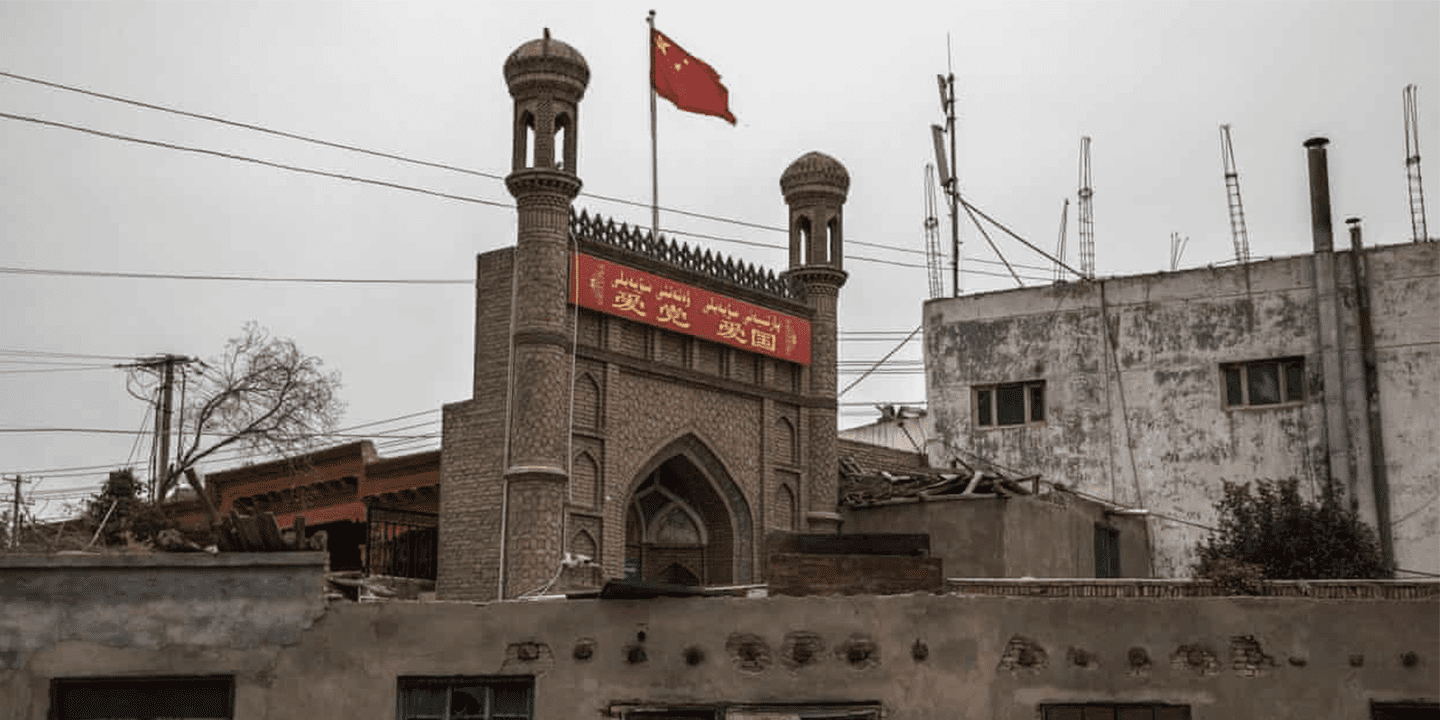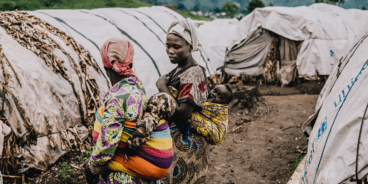

Atrocity Alert No. 179: China, Sudan and Syria
Atrocity Alert is a weekly publication by the Global Centre for the Responsibility to Protect highlighting situations where populations are at risk of, or are enduring, mass atrocity crimes.
Uighur cultural heritage systematically destroyed in China
Further evidence has emerged of the destruction of more than 100 sites of cultural and historical significance to Uighurs and other Turkic Muslim minorities in China’s Xinjiang Uighur Autonomous Region (XUAR). The destruction includes shrines used for religious pilgrimage and tombs of famous Uighurs. According to an AFP investigation, since 2014 Chinese authorities have destroyed at least 45 Uighur cemeteries, including 30 in the past two years.
Last week the Uyghur Human Rights Project and Bahram Sintash, a Uighur activist and independent researcher, also published evidence that over 100 mosques have been partially or completely demolished in XUAR, including historic mosques in several cities. According to the report, “as one of the cornerstones of their identity, Uyghurs’ Islamic faith has been a major target of the Chinese government’s campaign to eliminate the Uyghur ethno-cultural identity.”
The destruction of cultural heritage sites in XUAR is part of a sustained government program aimed at the systematic repression of Uighurs and other Muslim minorities. Approximately one million Uighurs and other Muslims are currently being detained in government-run “re-education” or “de-extremification” facilities without formal charges or due process. In recent years authorities have also implemented surveillance systems that monitor the daily lives of all Uighurs and increased restrictions on freedom of assembly, speech and religious practice. These systematic and widespread violations of the universal human rights of the Uighur population may amount to crimes against humanity under international law.
On 29 October the United Kingdom delivered a statement on behalf of 23 states in the Third Committee of the UN General Assembly urging the Chinese government to respect freedom of religion and belief and “allow the Office of the UN High Commissioner for Human Rights [OHCHR] and UN Special Procedures immediate unfettered, meaningful access to Xinjiang.” In response, Belarus issued a counter-statement on behalf of 54 states praising Beijing’s “remarkable achievements in the field of human rights.”
China must end the systematic persecution and arbitrary mass detention of ethnic Uighurs and other Turkic Muslims in XUAR. All UN member states – but especially influential members of the Organization of Islamic Cooperation – should urge China to respect the rights of all Muslim minority communities and call for unfettered access to Xinjiang for OHCHR.
Sudan protestors demand accountability for 3 June massacre
On Sunday, 3 November, protests erupted in Sudan with demonstrators demanding that the country’s newly-established Sovereign Council dismantle the political party of former President Omar al-Bashir and ensure accountability for a 3 June massacre perpetrated by the security forces.
The 3 June massacre took place amidst mass demonstrations urging a transfer of power from the Transitional Military Council (TMC) to a civilian-led government following the overthrow of Bashir. The paramilitary Rapid Support Forces (RSF), who were acting under the command of the deputy head of the TMC – General Mohamed Hamdan Dagalo, generally referred to as “Hemedti” – violently dispersed a sit-in outside the Army Headquarters in Khartoum. At least 120 people were killed and more than 600 wounded. According to the Sudanese Professionals Association, at least 100 people also went missing during the massacre and their whereabouts remains unknown.
Since the beginning of mass demonstrations against Bashir’s government in December 2018, more than 200 people have been killed and thousands arrested at numerous mass protests. To date no one has been held accountable for the unlawful killing of civilians or the disproportionate use of force against unarmed protestors. During July the leaders of the TMC, including individuals implicated in the June massacre, ordered an investigation that concluded that “rogue” military personnel were responsible. Although the Sovereign Council and Prime Minister Abdalla Hamdok appointed a new investigative commission during September, its current status remains uncertain.
As Sudan continues its historic transition from dictatorship to democracy, accountability for mass atrocity crimes remains essential. The Sovereign Council of Sudan needs to ensure the 3 June massacre is investigated in a timely and transparent manner. All those responsible for the killing of unarmed protesters need to be identified and punished, regardless of rank or position.
Germany charges former Syrian officials with crimes against humanity
On 22 October the German Federal Public Prosecutor filed charges of crimes against humanity against two former officials of President Bashar al-Assad’s Syrian General Intelligence Directorate. Set to begin in 2020, this will be the first trial of officials from the Syrian government’s security services for a systematic program of torture conducted during the country’s eight-year armed conflict.
The primary suspect is charged with 58 murders and multiple sexual assaults in a Damascus prison where approximately 4,000 opposition members were tortured. The second suspect is charged with facilitating the torture of at least 30 opposition members.
Germany was one of the first countries to prosecute Syrian individuals by utilizing the legal principle of universal jurisdiction, whereby perpetrators of grave international crimes can be prosecuted domestically irrespective the citizenship of the perpetrators or victims, or where their crimes were committed. Germany has pursued cases against at least three dozen other individuals for atrocities and other crimes committed in Syria. Several other countries – including Sweden, France and the Netherlands – have also initiated proceedings against suspected Syrian perpetrators.
While these cases represent a welcome blow against the impunity that has enabled eight years of mass atrocity crimes in Syria, they are no substitute for an international judicial mechanism. Despite 13 vetoes and deep political divisions at the UN Security Council, it remains essential that the Council refer the situation to the International Criminal Court or establish an international tribunal to try those responsible for war crimes and crimes against humanity in Syria.
Related Publications


